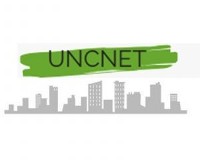
UNCNET is a three-year project funded under the Joint Programming Initiative Urban Europe in collaboration with the Chinese National Science Foundation. It tackles existing and future challenges of urban sustainability that are closely connected to the fate of reactive nitrogen compounds.
 © IIASA
© IIASA
Nitrogen, an essential element in proteins and hence facilitators of plant and animal metabolisms, is a key constituent in food and food products. In dyes and moldable forms, especially in artificial fibers, nitrogen compounds are essential carriers of desired product properties. Moreover, combustion processes almost inevitably lead to the formation of gaseous nitrogen oxides, produced in considerable extent from the major component of the atmosphere, molecular nitrogen. Hence, nitrogen compounds accumulate in the urban environment.
Urban agriculture, especially production of fresh produce and vegetables close to consumers, are particularly prone to excess use of nitrogen fertilizer. Dairy farming and meat production in the neighborhood of cities produce manure, which specifically in a densely built up environment will not find adequate agricultural area for use as natural fertilizer. As a consequence, nitrogen compounds find paths of regulated (via waste management) and unregulated disposal – the latter in form of air and water pollution. On the global scale, excess nitrogen pollution has been identified one of the most severe exceedances of the planetary boundaries to-date.
In this project, we will (i) break down the known issues of reactive nitrogen in the environment to the urban scale, (ii) assess quantities and magnitudes of stocks and flows of reactive nitrogen based on established methodology, (iii) develop modelling approaches and (iv) evaluate potential measures to close open cycles and improve the health and comfort situation of urban inhabitants. The project partners will engage in the project challenges by way of their respective unique disciplinary expertise, in providing local data and interacting with local stakeholders and policy makers to investigate implementation.
Research partners
- Chinese Academy of Sciences, Center for Agricultural Resources Research
- University of Zielona Góra, Institute of Environmental Engineering
- Peking University, Dept. of Atmospheric and Oceanic Sciences
- Peking University, College of Urban and Environmental Sciences
- E.C.O. Institut für Ökologie Jungmeier GmbH, Klagenfurt
- brainbows Informationsmanagement GmbH
